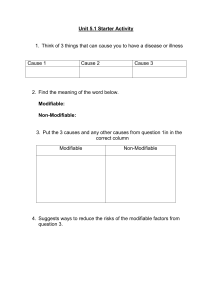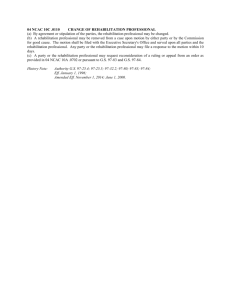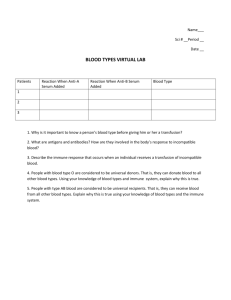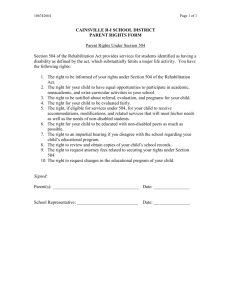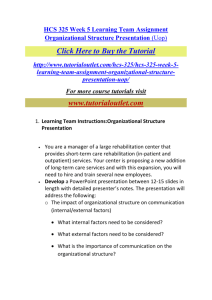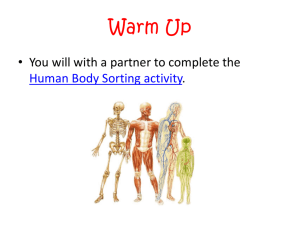Slide 1 - WordPress.com
advertisement
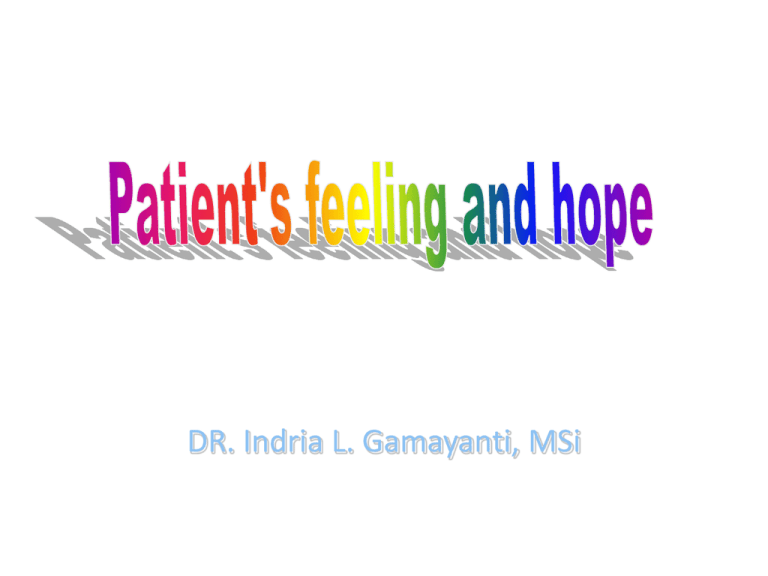
DR. Indria L. Gamayanti, MSi We are ”burnt” by our anger “trembling” caused of fear Being ”chocked” by our sadness Anger • Boiling the blood, … • Causes the body releasing chemicals and hormones : adrenaline and noradrenaline, alter the function of the heart, degree of constriction of dilation of arteries. • Effecting blood pressure, headache, heart attack, stroke and kidney problems. Worry, anxiety and fear • Worry causes the body produce chemical acetylcholine which causes the airways to contract. Fear causes the body to secrete epinephrine or adrenaline • Uncertainty creates devastating kind of stress response • Shortness of breath, palpitations, chest pain or discomfort, chocking or smothering sensation, dizziness, vertigo • Create negative expectations Depression and Despair • Much more than occasional sad mood, involves quitting or giving up • Cause the disruption of normal life balance, loss, conflict or trauma. • Can be a symptom of an illness or a medication side effect, PMS • A clinical syndrome based on neurochemicals Loneliness • Being alone doesn’t necessary mean lonely, but many people who are alone are lonely. • Connected to premature death, physical and mental disorder, bodily immune function. Altruism and Optimistm • Protect person from stress • Stimulates the brain to release endorphins, powerful natural painkiller. • Optimists related to better health, better immune and live longer Causal Attributions, feelings of control, and recovery from myocardial infarction Studies of patients recovering from myocardial infarction (MI) illustrate the importance of both causal attribution for illness and feelings of control. In one study, patients were asked (1) Why they thought they had a heart attack and (2) What health measures they planned to take as a result of the attack Several months later, their work and social functioning were measured. Patients who attributed the cause of their MI to modifiable factors under their personal control ( such as stress or smoking) were more likely to have initiated active plans for their recovery. For example changing jobs or starting exercise, and to have returned to work and resumed other activities. In contrast patients who attributed the MI to external factors beyond their personal control ( such as bad luck or fate, for instance ) were less likely to have generated active plans for recovery or to have returned to work; they were also less likely to have resumed other activities. Another research by Bar- On ( 1987) : If the patient’s attributions were to external, uncontrollable factors or if the patient denied the infarct, the progress on long term rehabilitation were less. If the attribution to internal and controllable factors may have counter-acted the patients’ tendency toward denial, nudging him in the direction of becoming more aware of the things he could do to reduce his risk for a second heart attack. The result suggest that when illness condition are perceived as being modifiable and under one’s personal control, the process of recovery from chronic disease is enhanced. Moreover, these kinds of perceptions may be even more important predictors of successful rehabilitation than more traditional physical cues employed by physicians in predicting rehabilitation ( Affleck et al and Bar – On in Taylor, 1995 ) A fifty five years old woman who was admitted to the hospital with a lesion in the upper lobe of her lung. She is l dynamic, vigorous and friendly. When the woman underwent biopsy, it revealed a deadly cancer that had already invaded the nodes; the surgeons could not remove it, so they close the incision. The next day a group of residents and interns surrounded her bed. One of them looked down and said’ : Well, it’s cancer, and we couldn’t really operated, so we just opened and closed. The patient kept repeating the question, “ opened and closed?” “ You mean you left the cancer there?”. “Yes.” he replied. She closed her eyes and told the interns she was tired. They left the room The woman died that night. When she was taken to autopsy, there was no specific cause of death – just the cancer, but it had been there for months. Alexandra M. Levine Los Angeles physician wrote : “I don’t really know why she died, but to be honest, I will always believe that she died because all hope had been taken away from her……… “ “The resident’s words took away her hope, and I honestly believe, as crazy as it may seem, that those words took away some of her potential lifetime”. Two oncologists on their discussion of metastatic lung cancer : One of the physicians complained bitterly : “ You know, Bob, I just don’t understand it. We used the same drugs, the same dosage, the same schedule and the same criteria. Yet I got a 22 % response rate and you got 74 %. How do you do it ? “ The other responded : “We’re both using Etoposide, Platinol, Oncovin and Hydroxyurea. You call yours EPOH. I tell my patients I’m giving them HOPE. Sure, I tell them this is experimental, and we go over the long list of side effects together. But I emphasize that we have change. As dismal the statistics are for non-small cell, there are always a few percent to do really well.” Hope • Hope is a pragmatic, goal-oriented attitude, a stance a person assumes in the face of difficulty • Hopeless is marked by negative future expectations and the belief that the future holds nothing good or positive. People who feel hopeless also usually feel despondent, desperate and despairing. They feel that they have lost control and feel helpless about what the future holds. The impact of hope on health Is not just a mental state : it causes specific electrochemical changes in the body that not only the strength of the immune system but can even influence the working of individual organs in the body Real hope, unlike false hope • It is not a tranquilizer for creating a mood of synthetic calm”. • It is a way of putting the human spirit to work; a way of respecting the desire of a patient to confront a new challenge: a way of summoning all one’s strength and resources in the most important fight of one’s life. No one would argue against the logic and necessity for a patient to reach out for the best medical help available Patient’s hope • Hope for being cured and having “normal” life again • Hope for the other attitude toward him/her Likeable or favorite supporting doctor ? Hope, faith, love and a strong will to live offer no promise of immortality, only proof of our uniqueness as human beings and the opportunity to experience full growth even under the grimmest circumstances. The clock provides only a technical measurement of how long we live. Far more real than the ticking of time is the way we open up the minutes and invest them with meaning. The ultimate tragedy is to die without discovering the possibilities of full growth.

